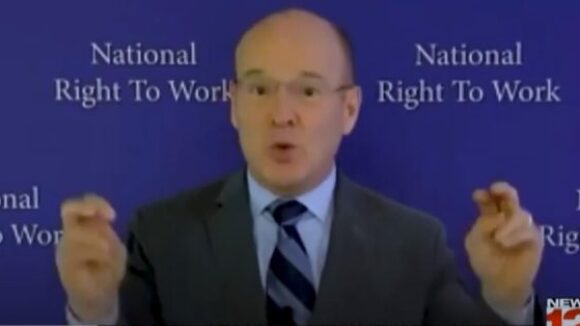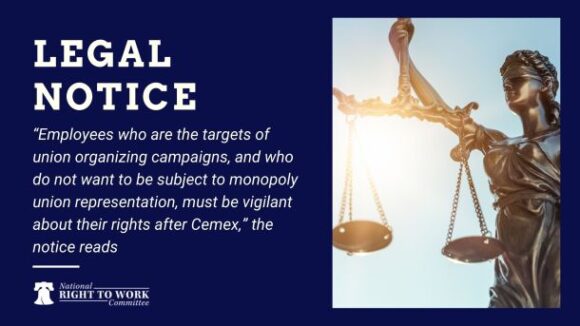We have reported about Democrat efforts in Iowa to destroy the state’s Right to Work Law. The Wall Street Journal has taken notice. In an editorial entitled, “Iowa Emigration Act,” the Journal correctly highlights the economic implications of the effort:
Big Labor’s response [to their declining numbers] has been to redouble efforts to rig the rules to make union organizing much easier. So in Congress the number one AFL-CIO priority is “card check” legislation, which would end secret ballots for organizing elections at worksites. Union reps would know which workers voted “no” and thus be able to exert enormous peer pressure to conform. Given union history, this would surely include threats and other intimidation. Democrats on Capitol Hill are likely to bring “card check” up for a vote on very short notice — the better to prevent business from mobilizing against it.
Meanwhile, at the state level, unions are trying to exploit their legislative victories in November by overturning right-to-work laws. These laws prohibit employers from requiring workers to join a union as a condition of employment. They also protect workers from having to pay union dues whether they belong to the union or not — dues that often go to political causes that workers don’t support.
Iowa is emerging as the first test of this effort, thanks to Democratic control of the Governorship and both legislative houses for the first time in 40 years. Iowa has been a right-to-work state for 60 years, which is one reason the state has been able to hold on to some of its manufacturing base. Though neither new Governor Chet Culver nor legislators campaigned against right-to-work, unions are now demanding a vote to gut the popular law.
The proposed law wouldn’t require workers to join a union, but it would mandate that all workers pay union dues whether they join or not. The unions call this a “fair play law” because all shop employees have to pay equally for union activities. But this is a strange definition of “fair” because it allows unions to dun workers without their consent.
If the Iowa legislature wanted to chase jobs and employers out of the state, they couldn’t come up with a better plan than undermining right to work. Leo Troy, an economist at Rutgers University, has studied the issue and found that “right-to-work laws are strongly correlated with faster growth in jobs and personal income.”
Many international and domestic companies won’t consider locating a plant in a non-right-to-work state. Most of the new auto plants owned by Mercedes, Nissan, BMW and Honda are located in Alabama, South Carolina, Texas and other right-to-work locales. A recent survey by the National Right to Work Institute found that, between 1986 and 2006, 11 right-to-work states have added 104,000 auto manufacturing jobs, a 63% increase. The non-right-to-work states lost 130,000 auto jobs, or 15% over the same period.
Iowa has one of America’s older populations, and the state’s politicians have been fretting for years about the difficulty of keeping their young people from fleeing for better economic opportunities in other states. If Iowa Democrats placate Big Labor and join New Jersey, New York, Michigan and Ohio in all but forcing workers to join unions, they can expect an accelerating exit to warmer economic climes.


